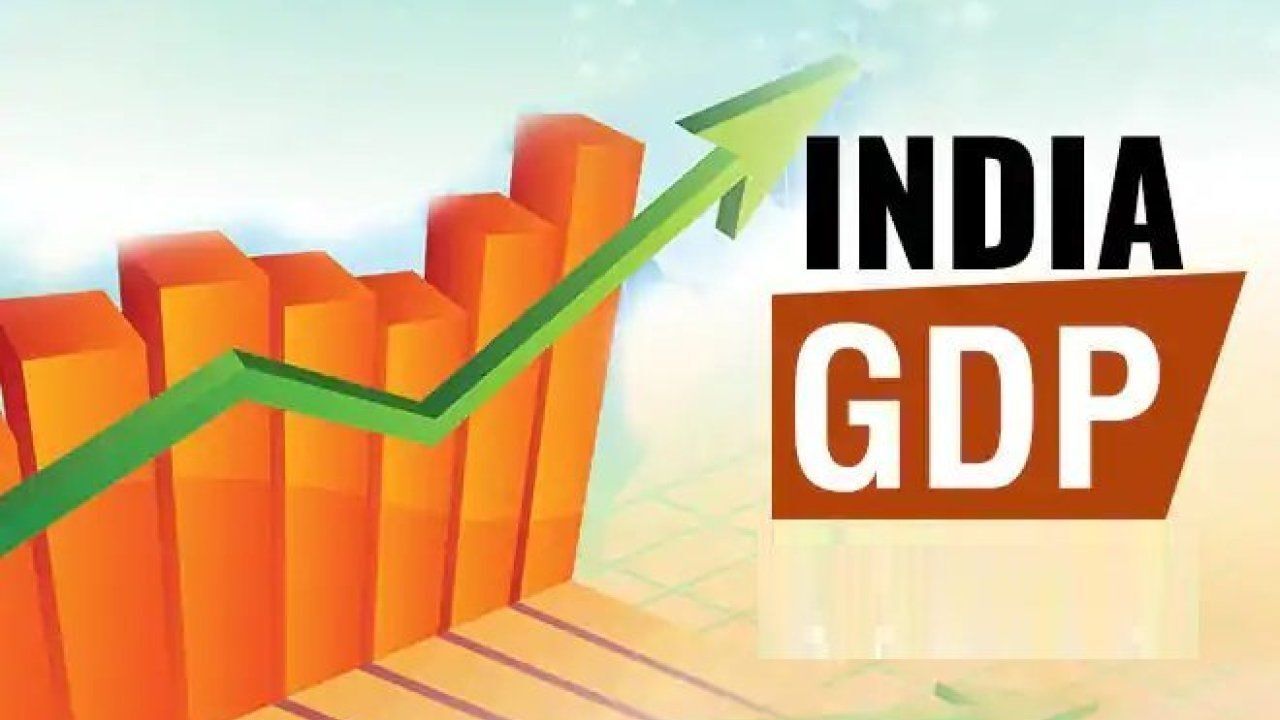Live
- Tabling CAG reports: BJP legislators move Delhi HC for special Assembly sitting
- Allu Arjun Faces Legal Case; Minister Seethakka Criticizes Lack of Support for Victim’s Family
- Taiwan Excellence announces the Top 3 global winners for Go Green with Taiwan
- Delhi High Court Denies Bail to IAS Trainee Puja Khedkar Over Forgery and Fraud Charges
- BJP rejects Kharge’s charge on EC’s ‘erosion’, says ‘most changes brought during Cong rule’
- 59 pc people seek GenAI smartphones by 2025 end globally: Report
- Crime Rate in Rachakonda Increases by 4% in 2024, Cybercrimes Surge by 42.5%
- AIM, Niti Aayog’s Youth Co:Lab challenge 2025 to foster innovation for disabled
- IIT Delhi students receive job offers from US, UK, UAE, Japan in abundance
- Pushpa 2 Leads to the Capture of Notorious Gangster Vishal Meshram in Nagpur
Just In

India's government has long claimed that the country is one of the fastest-growing largeeconomies in the world.
India's government has long claimed that the country is one of the fastest-growing largeeconomies in the world. That boast was a crucial part of the ruling party's message inIndia's recent election campaign — that, under Prime Minister Narendra Modi, theeconomy was in safe hands. Competence and sincerity as an economic manager is central to the image Modi has sought to project.
Unfortunately, that claim looks increasingly unsupportable. Earlier this month, officialgovernment figures revealed that the economy had been slowing for three quarters. Aftermonths of denial, the government also admitted that unemployment is higher than it hasbeen for four decades. Now, Arvind Subramanian, a well-regarded economist who was tilllast year one of Modi's most senior advisers, has argued in a Harvard working paper thatIndia's official figures overestimate growth by several percentage points. While thegovernment claims that India is growing at 7%, Subramanian suggests it's actually growing at closer to 4.5%.
Subramanian's methodology can certainly be questioned, and his estimate of actual GDP growth may be wrong. But, the fact remains that he has merely made explicit, through comparisons across time and with other middle-income economies, the central puzzle of Indian GDP data: If India's growing so fast, why do most other indicators suggest the economy is stagnating or slowing? Whether looking at credit growth or vehicle purchases, exports or investment, there's little support for the idea that India is enjoying breakneck growth at the moment.
It's past time that India's government took this problem seriously — both the questions about India's GDP data and the concerns about what the data reveals about the economy. So far, the government has denied that official data could be questioned, even though senior independent statisticians have quit after accusing politicians of concealing the unemployment figures. Absurdly, some officials have even tried to say that the unemployment data can't be trusted because the economy is growing so fast.
The government had better understand that this is a crisis of credibility. Its own senior officials don't believe its numbers. Shortly, nobody else will either. This is an unprecedented humiliation for Indian officialdom, which has prided itself on the quality and independence of its statistics. It needs to be addressed quickly, whatever the political cost.
Obviously, the first step has to be to set up an independent commission staffed with world-class economists and statisticians to go into Subramanian's critique. The prime minister's economic advisory council has already responded in a press release that essentially promises a "point-by-point rebuttal" to Subramanian — an indication that a real investigation is not on the cards.
Then there are the larger questions about India's economy that must be answered. If it is growing at less than 5%, then it is underperforming massively given its size and demographic profile. Yet, over a fortnight since Modi was re-elected, we still have no clear idea what his economic agenda for the next few months might be. This is a remarkable degree of hubris.
Every single economist worth his or her salt agrees that India's economy needs fundamental structural reform and has for years. Markets for land and labor are not flexible. Institutions are not sufficiently independent, the judicial system is so sclerotic that contract enforcement is a joke, and the financial system is too dependent upon state-run banks.
All of these bottlenecks need to be addressed and they need to be addressed together. When India's economy began its liberalization process in the 1990s, they were all on the agenda. Successive governments have set them aside as being politically problematic. Now there's less excuse than ever for putting them off: No government in that period has had Modi's political capital.
It used to be said that India only reforms in a crisis. Well, this is a crisis. If India is enduring rampant unemployment, if it is growing at only 4.5%, then not since the 1990s has the economy been so in need of drastic reform measures.
The government won't able to avoid the facts for long. Whatever it may claim about growth, investors will make up their own minds.
Confidence in India's economy continues to be shaky — and a few more quarters of bad indicators will erode it completely. At that point, even a government obsessed with its image will have to accept reality.

© 2024 Hyderabad Media House Limited/The Hans India. All rights reserved. Powered by hocalwire.com







